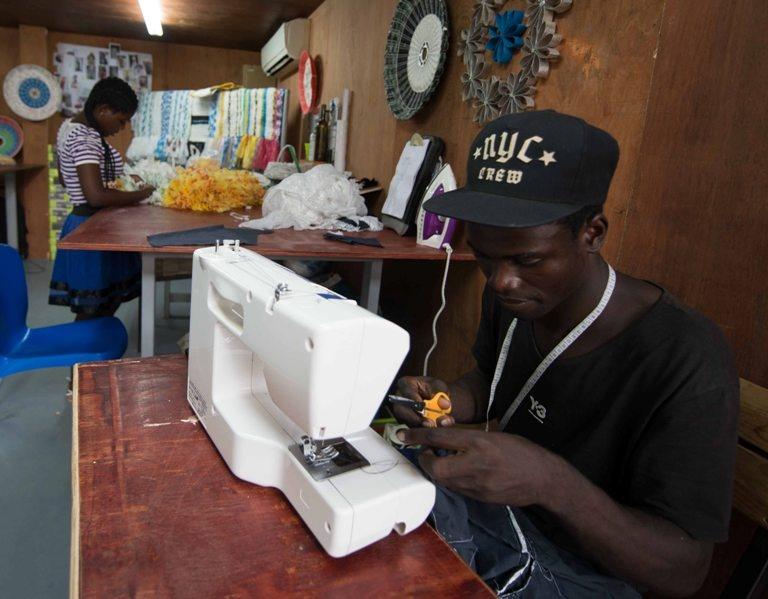People living in the slums of Luanda have been given a new lease of life thanks to a new innovation centre
Positioned in the heart of the slums of Cazenga, Luanda, there is a glimmer of hope for the thousands of people living there. An old soap factory has been turned into an innovative creative space for people to transform their future. It is the brainchild of Jean-Claude Bastos de Morais, the founder of African Innovation Foundation (AIF) and already the ripple effect of the factory's role in the community is having an impact on people’s lives.
He said, “I decided to take over the old soap factory and transform it into a creative space to foster innovation and entrepreneurship in the centre of the slums in Luanda because I believe the young people who don’t have anything, are very hungry to learn and to get on in life. Normally, people are very agnostic and are afraid of change and of things which have a direct connection to technology, but what we have seen at the hub is a viral effect of people experiencing opportunities for themselves that they can do something and are now telling their neighbours about it. We had a young kid passing by, and he has since learnt how to build a drum set. It is about doing something that helps them.”
Around 200 people per day come to the hub in Cazenga where 23,000 people live per sq km. Since de Morais and his team have moved into the area, they have cleared vast swathes of rubbish, which had been responsible for vermin and causing sickness. As a result, people have started to take pride in their area. He said, “I chose this spot on purpose because it is at the centre of a huge amount of people who can come and talk about the problems of the community and can find a solution in the hub, such as repairing solar panels. It is an example of an innovation ecosystem.”
The hub, which is run by 62 employees, has been split up into various spaces from manufacturing, arts and theatre to a co-working area for start-up businesses and smallscale entrepreneurs, who cannot register themselves as businesses because of living in the slums. They have access to office facilities, such as a desk and a computer. “In the manufacturing space, people make textiles bags and recycle stuff,” continued de Morais. “They transform materials such as plastic, iron, aluminium, and wood, into something, which is sellable and has a market. Out of the aluminium, they have created chess figures that are sold, and they have created a chess club. They have learnt how to smelt the aluminium by creating their own smelter and by burning cans on site. People have built their own furniture and have learnt how to build and dismantle a 3D printer within three weeks.
“I believe innovation is the solution. If you take a macro-view that today you have 1.1 billion people, 60 per cent of which are 19 and below, and then look at the birth rate of the whole continent in 30 years from now, 2.5 billion people, 70 to 75 per cent people being 19 and below, it can turn into a very beautiful story. If you create this innovation spirit it changes the mentality of the people and I have seen over the last seven years through the AIF how it has changed African countries for the better.”
The AIF supports African innovators and focuses on five main areas, which are Manufacturing and Service Industry, Agriculture/Agri-Business, Health and Wellbeing, Information Communication Technologies (ICTS), and Environment, Energy and Water. de Morais added, “Heads of states invite me to make sure the Innovation Prize for Africa (IPA) is celebrated in their country because it has such a big positive impact for the population. If we can implant this same spirit into two million young children, imagine what can happen in the future, that they too can dream to become an innovator.”
Jean-Claude Bastos de Morais
Jean-Claude Bastos de Morais, who is Swiss and Angolan, is the founder and chairman of investment firm, Quantum Global as well as the founder of the African Innovation Foundation. The purpose of the African Innovation Foundation is to increase the prosperity of Africans by catalysing the innovation spirit in Africa through the areas of innovation and technology, governance and compliance and social impact development. The IPA is part of the work of the foundation and recognises the achievements of innovators across Africa. It rewards US$150,000 to winners who deliver market-oriented solutions that boost the social and economic development of a country





















